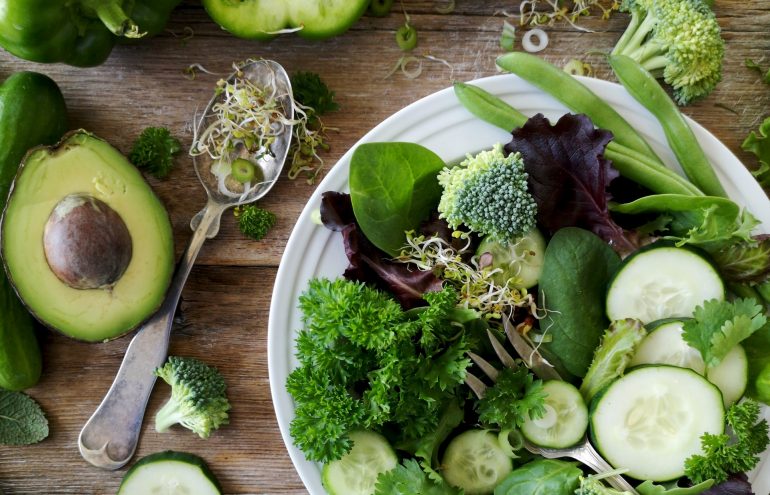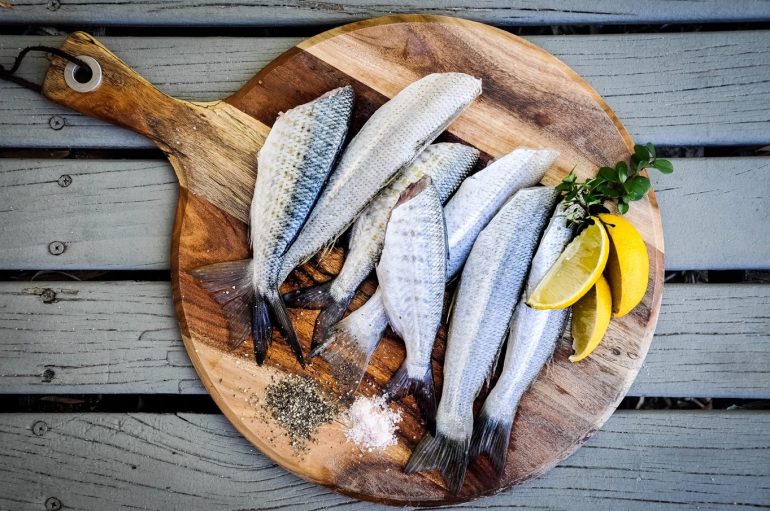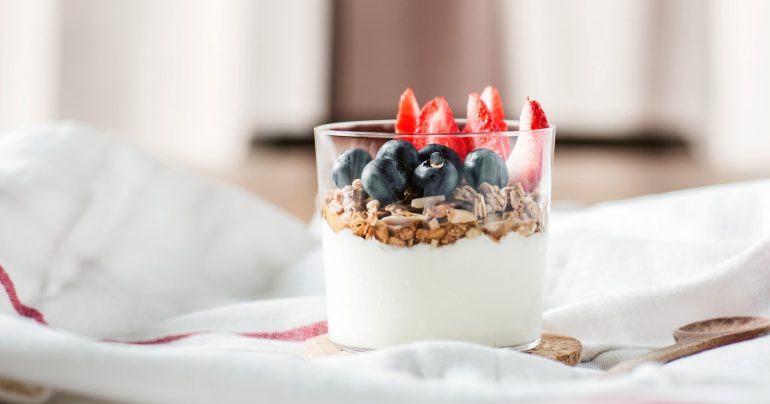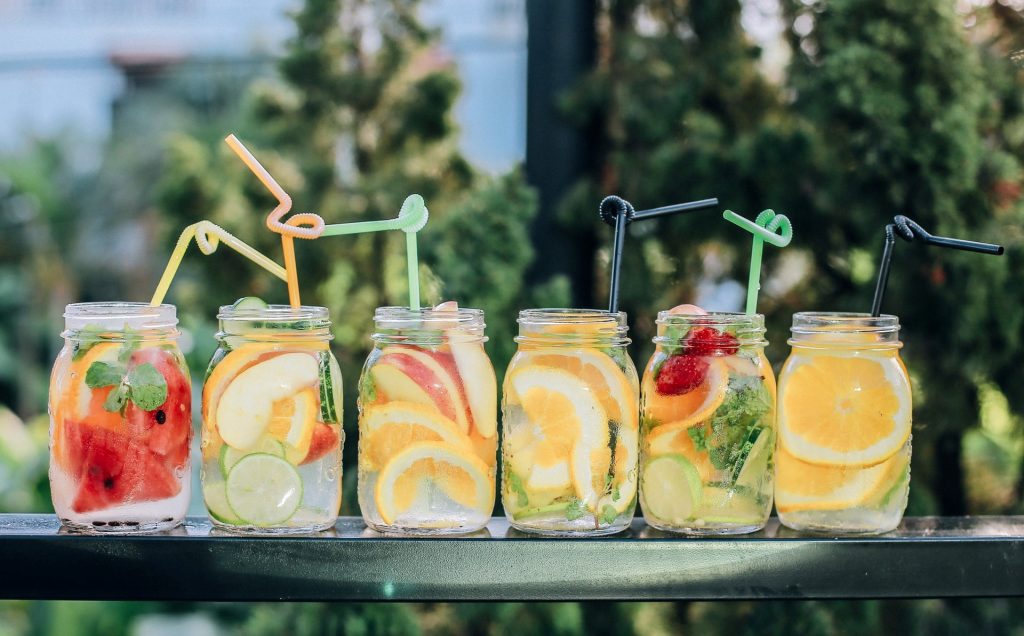The best way to get your essential vitamins and minerals? Through food, and preferably a well-balanced diet. That being said, sometimes it’s difficult to ensure that you’re eating from all food groups, all the time. Supplements can give your body a boost and be used to get the recommended daily allowance of vitamins and minerals you need for a healthy body. The recommended dietary allowance (RDA) for vitamins and minerals is the average daily intake a person needs to avoid deficiencies and stay healthy. However, everyone’s vitamin needs is different. Here’s a breakdown of essential vitamins and supplements (especially for women) you need for a healthier you.
VITAMINS:
VITAMIN A
Vitamin A is a fat-soluble vitamin also known as retinol and is found in many dairy products and yellow- or orange-coloured fruits and vegetables.
Why do you need it?
- Helps fight infection.
- Maintains healthy vision.
- Plays a key role in heart, lung, and kidney health.
- Keeps skin healthy by fighting off toxins (also called free radicals).
- Strengthens bones and teeth.
VITAMIN B
B vitamins (thiamin (B1), riboflavin (B2), niacin (B3), pantothenic acid (B5) pyridoxine (B6), cobalamin (B12), biotin, folate) make up Vitamin B complex which are in leafy green vegetables, animal proteins and whole grains.
Why do you need it?
- Maintains normal brain function and memory.
- Needed for normal metabolism of carbohydrate, protein and fats.
- Improves cholesterol by lowering LDL (bad cholesterol) and increasing HDL (good cholesterol).
- Reduces risk of heart disease.
- Reduces risk of stroke.
- Necessary for normal blood cell production and nervous system function.

VITAMIN C
Vitamin C needs no introduction. It is a water-soluble vitamin containing antioxidants that promote healthy tissue growth and is commonly used to combat colds.
Why do you need it?
- May reduce risk of getting the common cold.
- Maintains skin and tissue health.
- Strengthens bones and teeth.
VITAMIN D
While too much sun exposure is not a good thing, some sun is necessary to activate Vitamin D. It can also be found in cod liver oil, fatty fish, fortified juices, milk and cereals.
Why do you need it?
- Influences immune cell function.
- Maintains nervous system functions.
- Needed for bone health.
- Regulates blood levels of calcium and phosphorus.
VITAMIN E
An important vitamin for organ function is Vitamin E which can in attained from vegetable oils, avocados, spinach, seeds and nuts, and whole grains.
Why do you need it?
- Protects cells from damage from toxins.
- Maintains muscle function.
- Reduces risk of cancer.
- Reduces risk of heart disease.
- Reduces risk of Alzheimer’s disease.

VITAMIN K
Vitamin K with calcium becomes a dynamic duo in keeping your bones healthy. On its own, Vitamin K is essential for blood clotting.
Why do you need it?
- Helps in rapid wound healing.
- Creates strong bones.
- Helps protect against heart disease.
A good multi-vitamin will contain the recommended dosage to attain the above vitamins. It is important to note that age and gender determine the recommended daily levels of nutrients required. HealthHub lists the RDA for healthy individuals in a particular age and gender group here.
MINERALS:
Aside from the above vitamins, certain minerals, especially for women, are also equally important and should be considered.
CALCIUM
Calcium is found in high amounts in milk, other dairy products as well as fortified foods.
Why do you need it?
Women are four times more susceptible to osteoporosis than men so getting enough calcium is crucial.
- Essential for lifelong bone health.
- Plays a role in heart and muscle action, blood clotting and normal cell function.
FISH OIL
Fish are a rich source of omega-3s, namely EPA (eicosapentaenoic acid) and DHA (docosahexaenoic acid). These highly specialized fats cannot be made in our body, thus unless you love fish, it is difficult for you to meet the RDA.
Why do you need it?
- Important for heart and blood vessel health
- For reducing circulating triglycerides to lower heart disease risk.
- Support healthy joints, reduce inflammation and optimize brain operations.

FOLATE
Folate is a water-soluble B vitamin and as mentioned above, is part of Vitamin B complex. It is richest in food sources such as leaves (spinach, asparagus) and fruits (cantaloupe).
Why do you need it?
- Needed by cells to make DNA, and without DNA, cells wouldn’t function properly. Nor would they make new cells and tissue, such as skin and hair.
- During pregnancy, folate is critical in preventing neural tube abnormalities in the foetus, such as spina bifida. Supports normal levels of homocysteine in the blood, a controversial heart risk factor.
COENZYME Q10
Found in a variety of foods, including meats and fish, Coenzyme Q10 is a powerful antioxidant as well as a key component in helping fuel the production of energy within cells.
Why do you need it?
- Protect against premature aging and supports a healthy heart and blood vessels.

LUTEIN
If you’re a mum, you’d hear about lutein in formula milk. It is a part of a fat-soluble class of nutrients call carotenoids and found in dark-green leafy vegetables (such as spinach) as well as in various fruits, corn and egg yolks.
Why do you need it?
- Helps protect eyes against free radical destruction.
- Support general health of breast and cervical tissue.
- Found in the skin and may help protect against the sun’s damaging light.
OTHER SUPPLEMENTS:
Probiotics and herbal medicines like ginseng and ginkgo biloba have also gained popularity. Some of these herbal remedies may be more affordable and accessible than conventional medicines, and some people prefer using them because they align with their personal health ideologies.
PROBIOTICS
Probiotics are live bacteria and yeasts that are especially good for your digestive system. They are often referred to as are often called “good” or “helpful” bacteria because they help keep your gut healthy. Many believe that a healthy gut equates to a healthy you.
Benefits?
- Helps to relief Irritable bowel syndrome, Inflammatory bowel disease (IBD), Infectious diarrhoea (caused by viruses, bacteria, or parasites), and Diarrhoea caused by antibiotics
- May help with skin conditions, like eczema
- Maintains urinary and vaginal health
- May prevent allergies and colds

GINSENG
Ginseng is a medicinal plant and its roots are usually steeped to make a tea or dried to grind into a powder. Several varieties exist, but the two most popular are the Asian and American ginseng. American ginseng is thought to cultivate relaxation, while Asian ginseng is considered more stimulating.
Benefits?
- Reduce inflammation.
- Boost immunity.
- Boost brain function.
- Increase energy levels.
Where to get it?
ELDERBERRY
Typically made from the cooked fruit of the Sambucus Nigra plant. Today, it’s primarily marketed as a treatment for flu and common cold symptoms. Elderberry is normally available as a syrup and there’s no standard dosage. Some make their own syrup by cooking elderberries with other ingredients, such as honey, ginger, and cinnamon.
Benefits?
- Relieve headaches, nerve pain, toothaches, colds, viral infections, and constipation.
Where to get it?
Sambucol – online and major pharmacies
GINKGO BILOBA
Ginkgo biloba, commonly known as ginkgo, is a herbal medicine derived from the maidenhair tree. It is native to China and is one of the top herbal supplements in the market today.
Benefits?
- Treat heart disease, dementia, mental difficulties, and sexual dysfunction.
Where to get it?
If you’re considering taking herbal supplements, it’s best to consult a healthcare professional to ensure proper dosage, understand potential side effects, and watch out for reactions with other medications or supplements. Where possible, get your daily dose of essential vitamins and minerals from natural food sources by maintaining a well-balanced diet.



